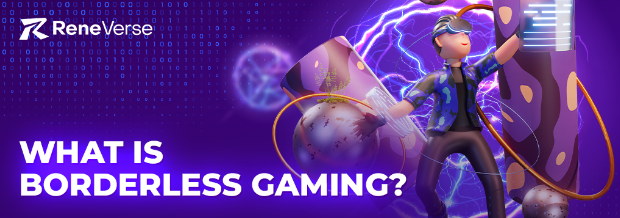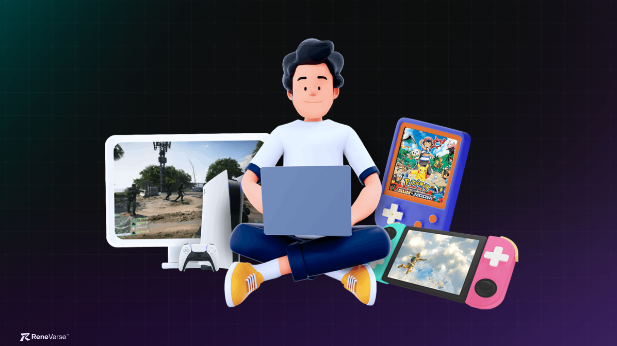What is borderless gaming?
Interoperable gaming, or borderless gaming as we like to call it, is a new paradigm that is redefining the way we can interact with digital…

Interoperable gaming, or borderless gaming as we like to call it, is a new paradigm that is redefining the way we can interact with digital assets — and thus the gaming industry as a whole. Interoperability, or the ability of different systems or softwares to exchange and make use of information, has been, to say the least, a recurring theme in various pop culture works regarding the video game industry. Movies like Ready Player One and Free Guy play with the concept of digital game asset interoperability at length, but the prospect of actually implementing asset interoperability into modern-day games in a way that is simultaneously functional and tasteful has been a pipe-dream. However, the truth of the matter is that we are beginning to construct the technical infrastructure that can make this possible.
Traditional games are those that are easily recognized and understood by the average person today. Mario, Call of Duty, even the iPhone-version of the Uno card game — All of these examples fall under traditional games, regardless of the digital platform or game genre they belong to. What all traditional games are defined by are the ways in which players can interact with the game. In traditional games, regardless of their scale, players may only interact with one another or elements within the game according to the explicit instructions of its developers. All manipulation of characters, items, and even environments are within the player’s control, but they are bound by the digital borders set by the game world’s developers.

Interoperable or borderless games allow for the digital borders around games to be broken down. Not unlike traditional games, interoperable games are constructed of thousands if not millions of constituent parts — characters, items, even the texture of the trees in a game’s forest, for example. However, in interoperable games, these parts are identified and connected to the blockchain, allowing for each to exist independently as digital assets of the game for which they were created. This means that one asset from one game can seamlessly exist and function with another game’s universe, allowing players to experience a greater range of gaming worlds and environments. Rather than being confined to a single game, players can transfer assets to new games, creating endless opportunities for novel experiences.

In this way, the advent of Borderless Gaming unveils immense possibilities for independent developers and full-fledged studios to generate more revenue for their games. In providing a unique proof of ownership with every Digital Asset, developers grant players a veritable stake in the games they play, increasing not only engagement over time but also the players’ earning potential. These asset use cases as both transferable items and as revenue generators of their own naturally increase the demand and value of these assets over time, which results in supplementary revenue streams for developers and studios. Through direct sales or recurring dividends on secondary asset sales, developers and studios can capitalize on the increased demand of their sold assets, capturing more revenue that can ultimately be reinvested into developing a perfected gaming experience, with better quality of content and rewarding game mechanics.
At ReneVerse, we’re dedicated to bringing Borderless Gaming to life — taking fantastic games that deserve to stand on their own and empowering them with the endless possibilities that blockchain provides. Through ReneVerse’s technology, the ability to migrate your game’s assets into a new game environment is as simple as integrating an SDK that will get your game blockchain-ready in minutes.
To learn more about our journey to develop the infrastructures that will support this future, check out http://bit.ly/3ZBJ5pO and sign up to receive updates on our free early-access SDK for use in your own game.

